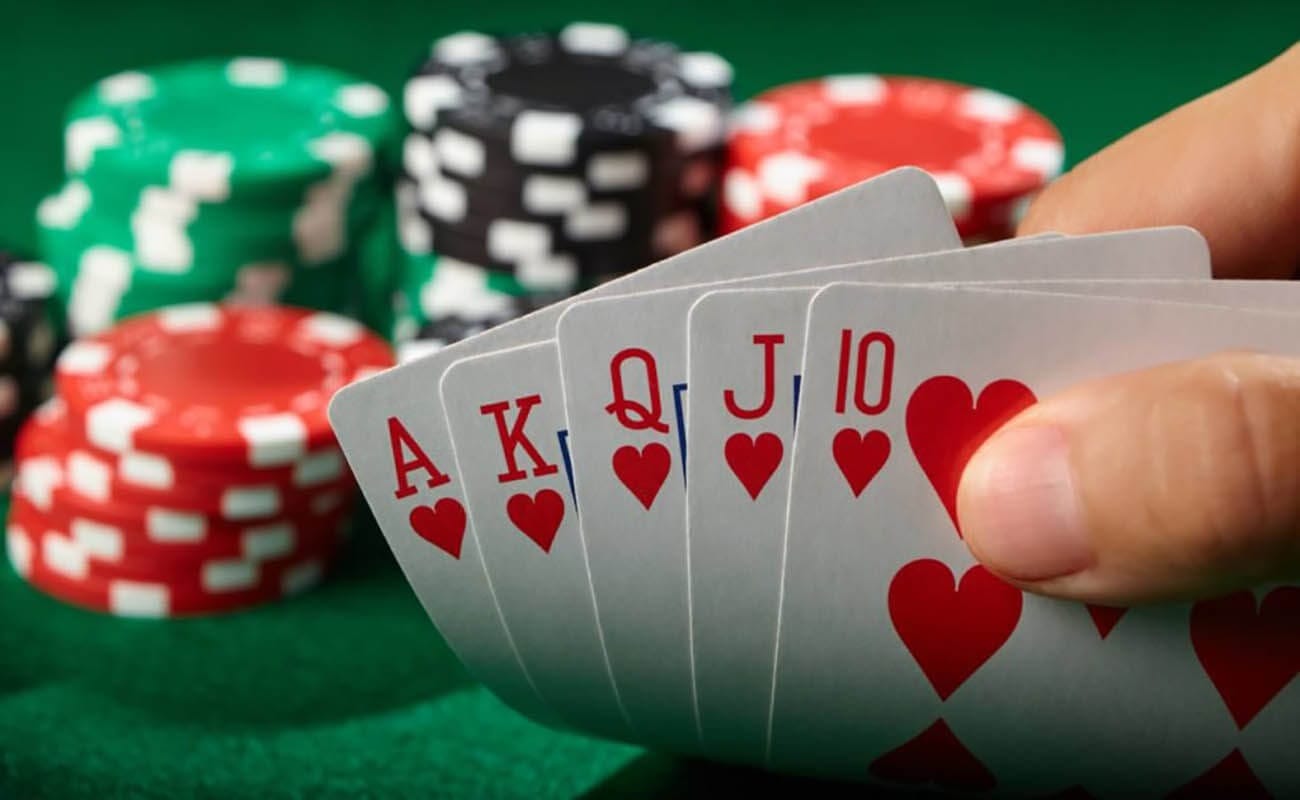There are countless online casino games to choose from, all of which are divided into two distinctive categories: games of chance and games of skill. Games of chance are exciting because their outcomes are (almost) always based entirely on luck. Anyone has a fair chance of winning, even if it’s your first time playing and you’re still learning the ropes. Then there are games of skill that demand a lot more from a player: focus, practice, experience and – most importantly – a solid strategy.
Poker is one of the best-loved skill-based casino games out there. In fact, it’s a game so reliant on skill that you could spend your entire life playing and still have more to learn! The best way to improve your chances of winning at online poker (or poker at a traditional brick-and-mortar casino) is to settle on a strategy that suits your unique playing style. This chosen strategy will serve you well in most games and tournaments. However, there will be times when you’ll need to deviate from your usual modus operandi and try something new. But how will you know when the time is right? Read on for some helpful insights on sticking to a poker strategy and when to improvise.
The basics of poker strategy
Elite poker players will tell you that the quickest way to up your game and keep improving is to maintain control of yourself at all times. You’ll need to approach the table or log onto your chosen online casino with as little emotion as possible while doing your best to remain mathematical and logical at all times. With that in mind, let’s get going on live poker strategy.
Starting hand selection
If you’re just starting out, the starting hand selection means proceeding only with good hands and folding the bad ones when you get them. The logic goes that when you enter the pot with a good hand more often than your opponents, you’re likely to win more than your opponents.
A rule of thumb for a novice is to stick to the big cards. This offers the best chance at winning. Then, the more experience you clock up, the more you can experiment and expand your starting hand requirements.
Middle and end game

When you have a firm understanding of starting hand selection and table position, your next focus will be on how to play the rest of the hand. Our next poker tip from elite players is that even though starting hand decisions are important, it’s often how you play the rest of the hand (and especially the end) that determines whether you win or lose.
Your middle and end game includes working out pot odds, spotting betting patterns, bluffing and using position to your advantage. Keep in mind that it takes many years to master these skills, but it’s worth it if you want to know how to win poker tournaments.
Poker playing style
The appeal of poker for die-hards who keep playing through the years is the many different ways that you can play, although game styles typically fall into four categories. See if any of these describe you because your style will impact your poker tournament strategy.
- Tight: When you “play tight,” you’re taking a cautious approach to a game, so you’d play fewer hands and damp down the risks.
- Loose: “Playing loose” means you’re playing many hands and are more willing to gamble.
- Aggressive: An aggressive player tends to place lots of big bets and opening pots to put opponents under pressure.
- Passive: Passive players tend to “call” more than “raise,” allowing their opponents to dominate the action.
For the novice, you’ll want to concentrate on just one or two styles while you learn the ropes – tight/aggressive is the best combination to begin with. An aggressive style eases you into a long-view essential of poker – aggressive betting. Meanwhile, a tight style of play conditions you to play mostly good hands before the flop so that you stay out of bad situations with negligible hands. Once you’re more comfortable with your game, you’ll want to switch up your style to avoid being predictable.
Understanding the importance of position
Now that you’re ready to get to grips with position, here goes: The dealer – or if you play online poker, the “button” – is almost always last to act in a betting round. This is a tactical advantage that clues you in to how your opponents have acted. For the sake of fairness, this position rotates to the next player after every hand so that each participant shares the advantage. It’s an opportunity that you don’t want to waste, so aim to play more hands when you’re in “late” position than when in “early” position.
Bluffing basics
Even if you’re just starting to create an easy poker strategy, you’ll probably know that a good bluff can help you win a pot that you might have lost without a bluff. The aim of a successful bluff is to get another player to fold the best hand. Bluffing essentially gives you a chance to convince other players that you hold winning cards when, in fact, you have a bad hand that you want to fold before the flop or marginal hands that you don’t want to spend too many chips on.
Be warned, though, that if you simply put a last-hope bet out there to win the pot, a savvy player will most likely call your bluff. To be convincing, you’ll need to think about how your play looks to your opponent and you’ll need to put on your acting hat by thinking about how you would play the hand if you really had the cards that would beat them. Think through the entire hand so that your actions are consistent and believable. If you’re new to the game, online poker is a great way to practice your bluff because your opponents can’t read your reactions.
The odds
Odds – or the probability of something happening – is an important part of your strategy. So, for example, the odds of getting a 6 on a six-sided dice are 5/1 because for each time the dice lands on a 6, it could land on another number five times. You’ll find the mathematics of poker in working out the odds. Let’s look at an example. You hold four clubs and when the final club falls on the river, you’ll make your flush and win the pot. As you know, a deck of 52 cards has 13 clubs. Now two are in your hand and two others are on the board. This leaves nine clubs. Subtracting the two in your hand and those on the board, there are 46 that could fall on the river; nine of these will win the pot for you. So these nine cards are your “outs.” Your odds of making the flush are 37/9, while the probability of making your flush is about four to one.
Stay with your strategy or improvise?

Here’s another poker tip from the poker pros: Always stay with your successful poker tournament strategies unless you have a very good reason to improvise. Never improvise because you’re bored. Avoid improvisation if you’re new to the game because, without a fair amount of experience, it’s going to be hard to assess different situations accurately.
One of the main reasons players abandon their strategy when they shouldn’t is “tilting” or “steaming.” This is when you allow your emotions to get the better of you and it almost always harms your game. If you do find yourself getting emotional over your game, walk away, take a breather and come back when you’re in control again. Accept that not every game will go your way. Negative emotions or fatigue can push you to abandon your strategy and that can hurt your bankroll and you personally. Keep things in perspective and take the stress out of playing by making sure that you always bet responsibly and can afford to lose every cent that you play with.
Notice that your poker strategy is no longer yielding the same results as it used to? You might be tempted to throw it out of the window and improvise instead. But the reality is that you’re probably just having a bad day (or a bad week.) Only ever turn your back on a strategy if it fails you consistently for an extended period of time after once having served you well. In that instance, it’s best to step back from the table for a little while and devise a slightly different strategy, making sure that it’s still relevant to your style of play. “Perfecting” your new approach (if there is really such a thing) will take some trial and error, so consider playing “friendly” games with friends or relatives before putting it to the real test in a poker tournament or live poker game. Remember that your poker skills will evolve over time – so, too, should your strategy.
When to balance your play
If you’re unfamiliar with the term, “balanced play” is when you bet hands that have no real value in the same way that you’d bet hands that do have value. You’d switch your strategy from unbalanced play to balanced play if you were trying to stop observant opponents from accurately gauging your betting range. This is an effective tactic that may shut down their ability to take countermeasures against you. Adding a weaker hand that you’d raise in early position or re-raise, is one way of hiding the strength of your hand and preventing experienced opponents from playing effectively against you.
Just keep in mind that less experienced players might not be capable of accurately assessing your playing habits – you could end up losing money by balancing your range of hands.
Switch from hands to ranges
Elite poker players think of a game in terms of ranges instead of a specific hand. The strategy behind this is to understand that a particular player will have a range of hands with various frequencies. Once you’re thinking in this way, you can start to work out these frequencies and make the best play based on this.
You will also want to switch up your strategy if you’re playing to a favorite hand. Too often, that hand that gets your heart pounding is, in effect, a second-rate hand, so by all means, play it in late position in an unopened pot or else fold in early position.
Play with different opponents

If you’re working on the live poker strategies that are going to be successful for you, you’ll want to switch up your opponents often. This will allow you to assess your true abilities when at the table with players who have games that are both weaker and stronger than yours. This also allows you to get better at the strategies that will work best when faced with certain situations. As we’ve said before, the appeal of poker is in the many different ways that it can be played and how the game pushes you to keep making good decisions and meeting new challenges.
Test your strategy at BetMGM
Whether you’re a novice or simply want to brush up on your poker skills and strategy, BetMGM is full of guides, cheat sheets, charts and the rules of popular poker games, from Texas Hold’em and Omaha variations to Spins and FastForward. You can also sign up to start playing any of our live online poker tournaments or any of our other popular casino table games. Our menu also boasts plenty of exciting online slots if you need a break from the strategy and are looking to dance with Lady Luck. Register whenever you’re ready – and enjoy!










